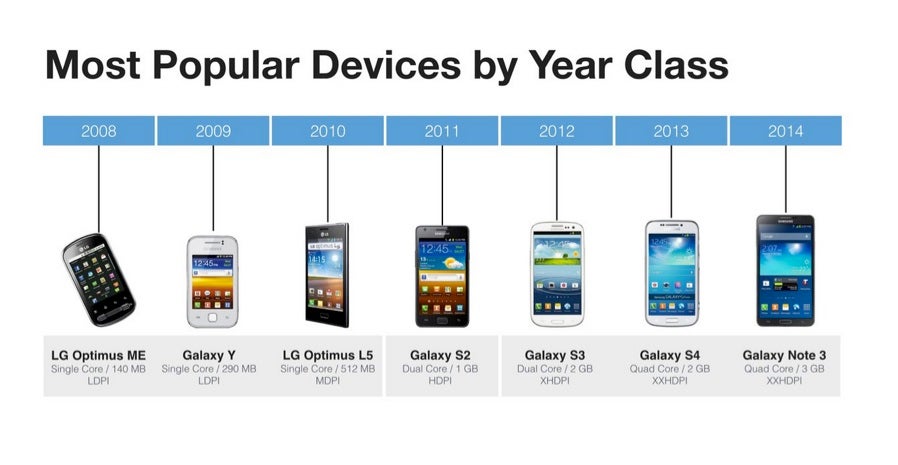Facebook: 66% of our Android users are 2011-era or older spec hardware

Facebook, like Android, has a massive user base. According to the massive social network’s developer blog, Facebook sees more than 500 million active users every month using more than 10,000 different Android powered mobile devices.
The teams now look at a “year class” of the hardware, and according to Facebook, better than two-thirds of the Android user base is on a hardware equivalent to something released in 2011 or earlier. For a competitive comparison, 2011 is when the iPhone 4 and Samsung Galaxy S II were the banner bearers for the platform.
Facebook is also examining how these devices perform on their respective mobile networks, so that performance can be optimized for networks exhibiting high-latency (as such as can be optimized anyway). In addition to performance, knowing if the device is operating on a new 4G network, versus a legacy 2G, or congested 3G network in a developing market.
Below is an interesting video where Facebook presents the variables discovered as it adopted this practice of looking at Android from a hardware perspective. It is long, nearly an hour, but the first 13 minutes provide a good overall view of the Android landscape for Facebook.

source: Facebook Code Blog
Follow us on Google News














Things that are NOT allowed:
To help keep our community safe and free from spam, we apply temporary limits to newly created accounts: